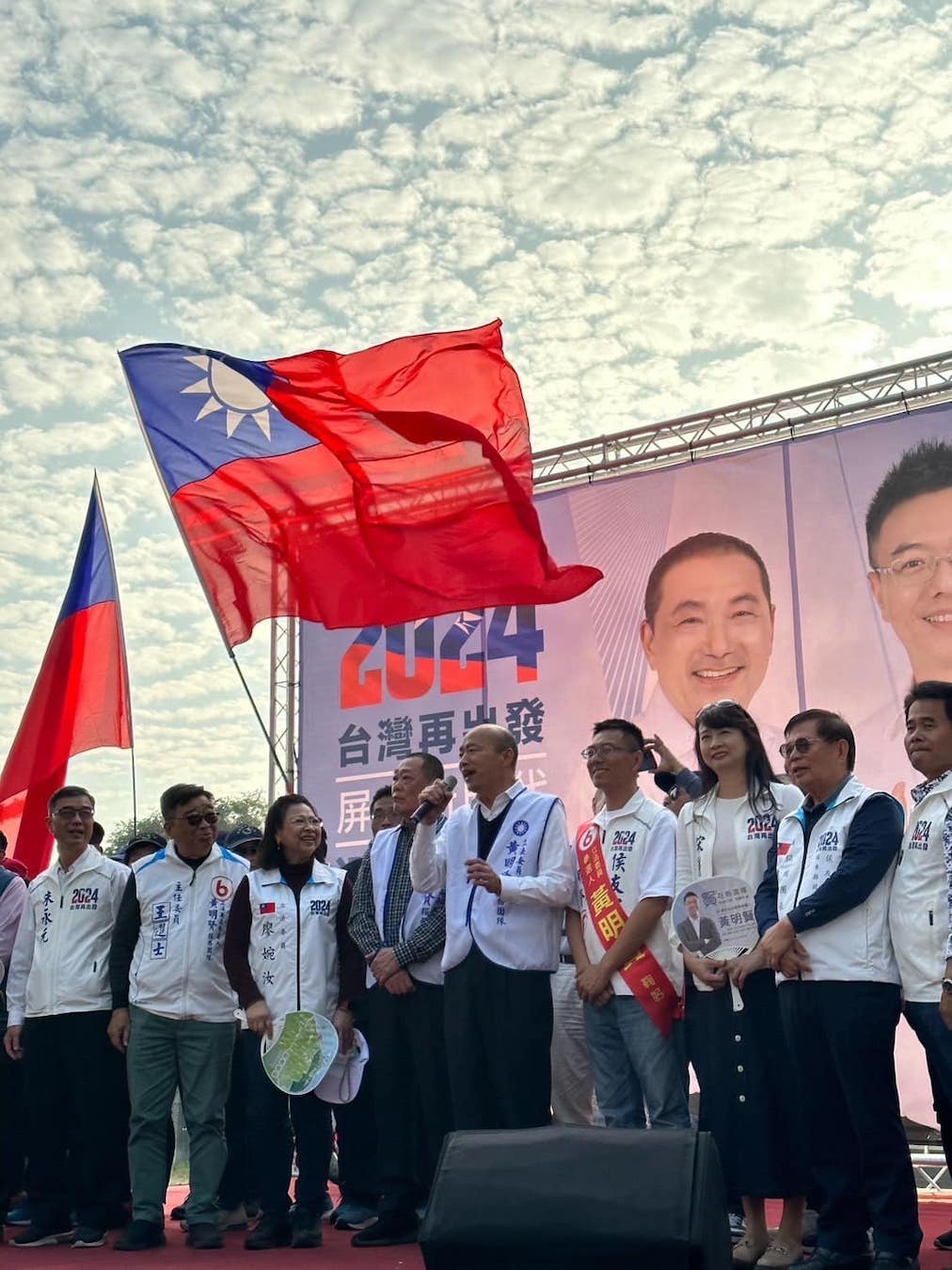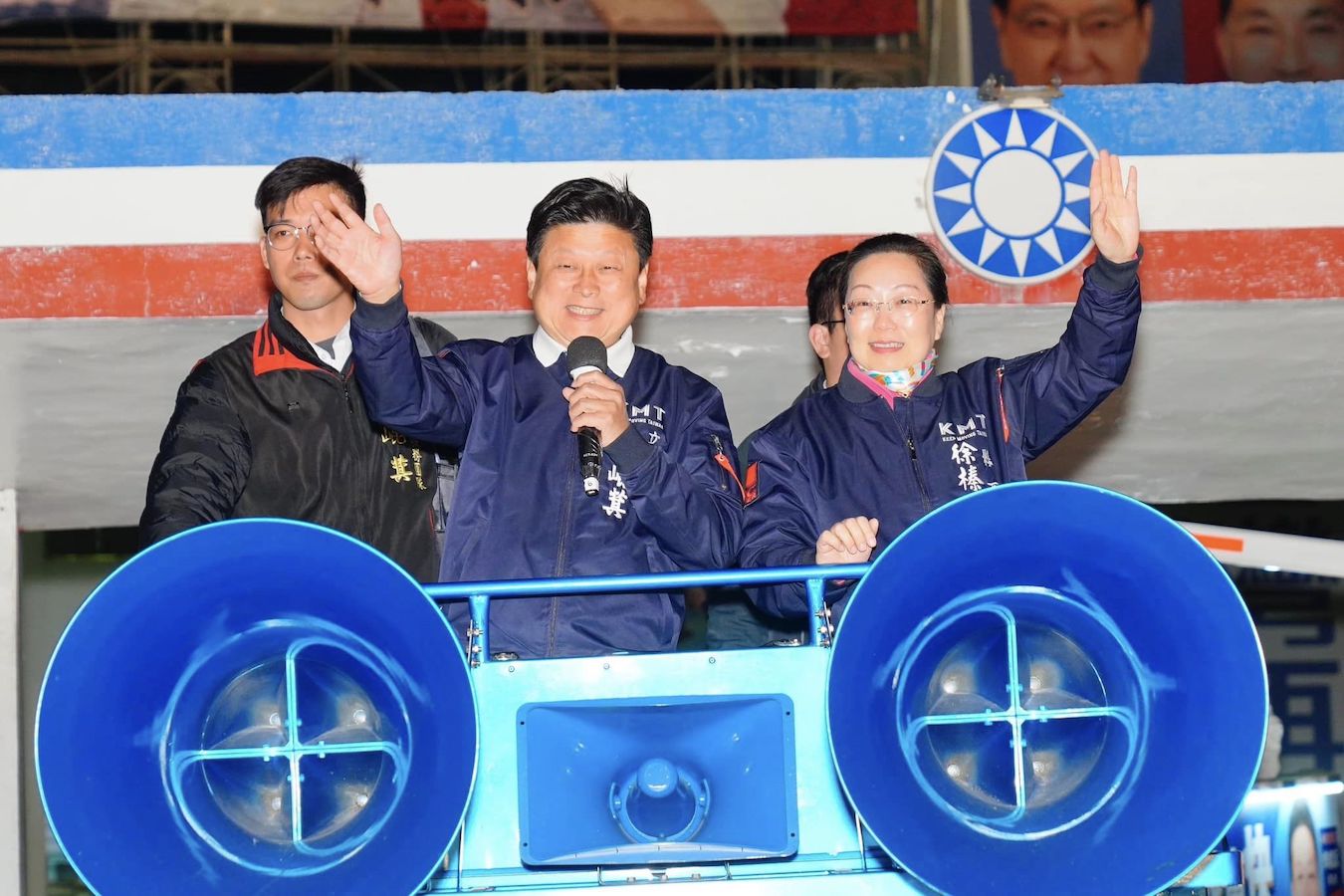by Brian Hioe
語言:
English
Photo Credit: Fu Kun-chi/Facebook
THE CONTEST OVER who will be the next speaker of the Legislative Yuan is on. The DPP hopes for Yu Shyi-kun to continue serving as president of the Legislative Yuan. By contrast, the KMT has aligned behind a joint ticket of its 2020 presidential candidate, Han Kuo-yu, and its former chair, Johnny Chiang. As part of this ticket, Han would become president and Chiang would become vice president.
The results of the 2024 presidential and legislative elections were such that no party held the majority in the legislature. While the DPP has one seat less than the KMT, with 51 to 52 seats, it is the pan-Blue third party of the TPP that potentially stands to control the balance of power with its eight seats.
The DPP fielding Yu Shyi-Kun can be interpreted as another move stressing continuity, in that in the preceding legislature, Yu was the president. To this extent, it was expected that the KMT would field Han when it named Han to the number one position on the KMT party list.
 Han Kuo-yu (center). Photo credit: Han Kuo-yu/Facebook
Han Kuo-yu (center). Photo credit: Han Kuo-yu/Facebook
It is more surprising that Han chose to run on a joint ticket with Johnny Chiang. Namely, Han is generally understood as a hardliner in the party, seeing as he enjoys the support of deep Blue in the KMT. Despite being defeated by Tsai in the 2020 elections by large margins and then being recalled from his position as mayor of Kaohsiung by even larger margins, Han continues to be highly popular with deep Blues because of to what extent he leaned into ROC nationalism during his 2020 campaign.
However, Han may have viewed it as a winning strategy to form a joint ticket with a moderate in the party as Chiang. Chiang is a would-be reformer who only served one partial term as chair, but the KMT may have embraced this as a strategy after the Hou-Jaw ticket also paired the moderate Hou with the hardline Jaw. Yet though this was successful in mobilizing members of the KMT base who were less enthusiastic about Hou, this was not a winning formula for winning the 2024 election either, hence it is unusual that Han decided to align with Chiang for his run. Likewise, Chiang has likely diluted his brand as a moderate by aligning with Han.
What proved surprising earlier this week, however, was that Hualien legislator Fu Kun-chi sought to challenge Han in seeking the presidency of the Legislative Yuan. Fu’s prospective run only lasted for a day before Fu instead changed course to announce that he would back the Hou-Chiang ticket. Still, Fu’s abortive run is telling.
Fu is one of the most notoriously corrupt politicians in the KMT. In particular, allegations of corruption and insider trading have dogged Fu for over fifteen years. Insider trading charges against Fu date back to 2005, with Fu accused of manipulating the stock prices of Hold-Key Electric Wire & Cable Company Limited after being offered 20 million shares by Hold-Key’s general manager, Yang Kai-ti, and deputy general manager, Yu Su-yuan.
Both hoped to inflate the value of Hold-Key stocks because the company had recently won a lucrative contract from state-run electricity company Taipower. Fu’s actions subsequently led to the tripling of Hold-Key’s stock value. The court case led to a 54-month sentence, which was reduced to a 42-month sentence in the second ruling, and then later to a 16-month sentence that was reduced to an 8-month sentence after the case made its way to the Supreme Court.
Another major scandal broke out regarding Fu in December 2018, with the revelation that Fu spent 5.46 million NTD to bribe journalists for positive political coverage. Fu was accused of misappropriating county funds and rewarding them to reporters from media outlets for positive press. This took the form of what was ostensibly a bid awarded to develop a media database for promoting county policies, with payment amounts in the hundreds of thousands of NTD. 25 reporters from 14 news outlets were involved, including major newspapers and television networks, both pan-Blue and pan-Green, as well as both privately and publicly funded. These include the United Daily News, Formosa TV, Sanlih Television, Next TV, CTiTV, Taiwan Indigenous TV, and Hakka TV.
Most infamously, when Fu was to be jailed on corruption charges as Hualien county commissioner, he divorced his wife, Hsu Chen-wei, and named her deputy county commissioner. This way, she could continue ruling Hualien in his stead while he was in jail.
 Fu Kun-chi. Photo credit: Fu Kun-chi/Facebook
Fu Kun-chi. Photo credit: Fu Kun-chi/Facebook
Fu’s corruption caused him to be kicked out of the KMT, but he was brought back into the KMT at Eric Chu’s initiative, given that the KMT needed politicians who were able to win elections to survive, no matter what their political record was. At the time that this occurred, Fu rejoining the KMT led to friction, seeing as young members who hoped to change the image of the KMT were opposed to this. As Chu backs the Jaw-Chiang ticket, Chu more or less allowed for Fu to rise to a position where he could potentially challenge Han.
Indeed, Fu and Hsu were seen as having a suspiciously high vote count in elections for the KMT’s central standing committee, with Taipei city councilor Hsu Chiao-hsin alleging that vote buying had taken place. Fu’s seeking of the presidency of the Legislative Yuan raised concerns that there would also be attempts at vote buying in the legislature and in the KMT.
Either way, this goes to show that Eric Chu’s authority in the KMT is weak, at a time when Chu faces calls to step down for the KMT’s failure to claim the presidency in the 2024 election. Chu has defended himself in that the DPP was ousted from its majority in the legislature, but party hardliners hope for Chu to be pushed out, perhaps so that Jaw or another deep Blue hardliner can take on the party leadership. It is to be seen if Chu manages to retain power in the KMT.

